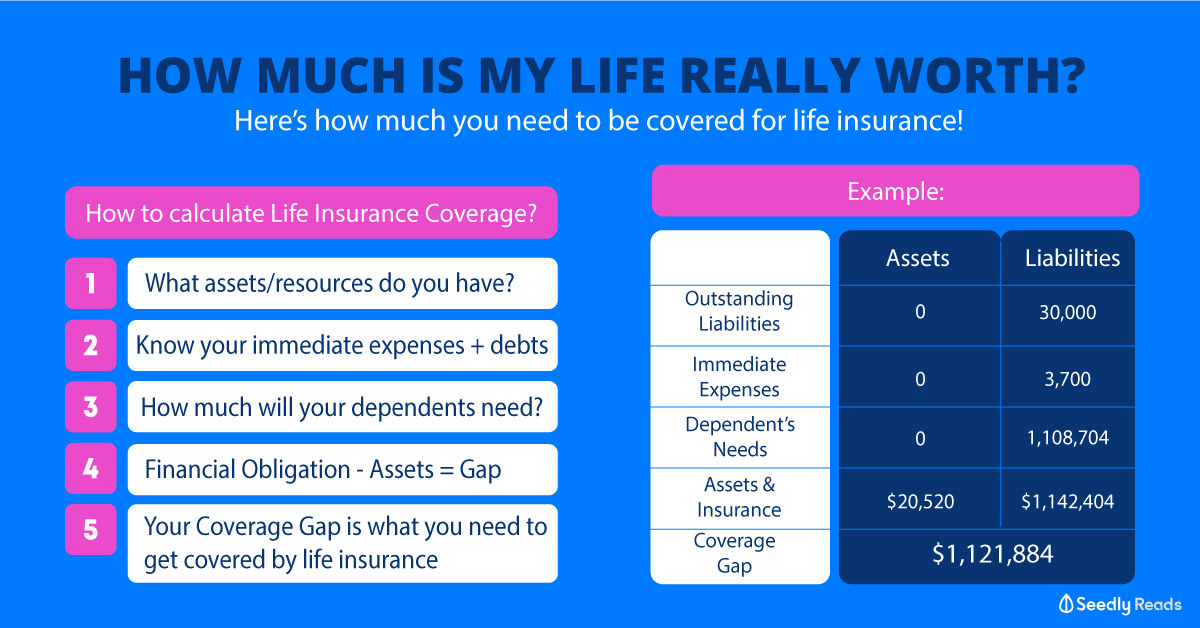Advertisement
Anonymous
I'm 25M, non-smoker, and healthy now. I have no dependents or liabilities. Is a whole life + CI/ECI insurance appropriate for me?
I'm feeling a bit pressurized to buy one because of the upcoming changes to LIA's CI definition. I have done a lot of research and I know that life insurance is to provide for financial protection for dependents and liabilities, but I currently have neither.
I've also read about buy term invest rest, but from my understanding, whole life has a cash value so I can at least cash it out in the future, vs term where the premiums are "wasted" (if I'm lucky).
12
Discussion (12)
Learn how to style your text
Loh Tat Tian
14 Aug 2020
Founder at PolicyWoke (We Buy Insurance Policies)
Reply
Save
Shania Loh
10 Aug 2020
Seedly Student Ambassador 2020/21 at Seedly
Hello!
Ultimately I think it comes down to your own needs and preferrences. With the changes in CI definition, its normal to feel pressured. I'm 22 and I got mine a few months ago because I felt it was important to start early and get the coverage I need. But of course, pay an amount that is within your limits!
For a term or whole life plan, weigh out the pros and cons of each and see which one fits your needs and lifestyle. The cash value of the whole life plan may be more appealing, but it is more costly than a term plan. Whereas for a term plan, its cheaper and you get to invest some extra savings you have left. There is no right or wrong to it, I'd suggest to seek professional advice and you may direct your questions and worries to him/her! It comes down to suiting your needs, lifestyles and taking care of your worries in the long run. Hope this helps and best of luck!
Reply
Save
Elijah Lee
06 Aug 2020
Senior Financial Services Manager at Phillip Securities (Jurong East)
Hi anon,
Do not be pressured into buying CI coverage, unless you have no coverage or insufficient coverage in the first place.
To be more precise, death and TPD coverage is used to provide for financial protection for dependents and liablities. Since you have neither, you don't need death/TPD coverage. If in future you need it, you can always get it on a term plan as that is more cost efficient.
This is where BTIR comes in. As the premiums for death/TPD are far cheaper on a term than a whole life, both in terms of total premium, and from a per year pespective, term is best when you are covering death/TPD. However, one must also be disciplined enough to invest instead of spending the savings from the premiums elsewhere, and you are the one fully exposed to market risk.
For limited payment whole life with CI/ECI riders, the total premiums may actually be lower than a term plan with equivalent CI and ECI coverage. The yearly premiums might be higher since you are compressing your premiums over a shorter period (say, 20 years, instead of the typical 40 years for a term plan), but the difference is much smaller. As such plans typical come with a multiplier to boost your coverage, you are in effect getting a whole life plus a term.
Furthermore, the more important thing is that you retain CI coverage for life, and this helps to ensure your retirement is not derailed by a CI that forces you to liquidate your retirement assets. The cash value of the whole life is really there to boost your coverage in your retirement to be more than the basic sum assured, which acts as an inflation hedge over the years.
In the end, I would say get your coverage because you need it, and not because you feel pressured. If you have sufficient cover already, there's no need to rush out to get more.
Reply
Save
Patricia Law
04 Aug 2020
Financial Services Consultant at AIA
Hi there,
Priority for you now will be to cover Critical Illness as in the unfortunate diagnosis of critical illness, you will be paid a sum to cover living expense as compared to life plan where you will only get the paid out upon death / TPD / CI - one time payout (if you have a CI rider).
You can consider buying AIA Power Critical Cover (one of the best CI plan in the market) that covers up to 100 years old. This plan has cash value if you decide to surrender after 75 years old and it covers critical illness from early, intermediate and major. The plan has a power reset & relapse benefit that will reset the sum covered after 12/24 mth of claim up to 500%.
As you have mentioned, the definition will change from 26 Aug 2020. You can consider whole life plan at a later date but priority should be to have a good CI coverage before this date.
Hope the above clarifies.
Reply
Save
Duane Cheng
03 Aug 2020
Financial Consultant at Prudential Assurance Company Singapore
Hi there,
The TLDR answer is yes you need CI coverage.
CI/ECI coverage for you today, is solely t...
Read 4 other comments with a Seedly account
You will also enjoy exclusive benefits and get access to members only features.
Sign up or login with an email here
Write your thoughts
Related Articles
Related Posts
Related Posts
Advertisement







The easiest way to answer this question, is to look into what you can do about it.
Both way works (BTIR buy term invest the rest or whole life), depending on your objective.
If you can invest, yea it looks good because you are able to invest the difference in premiums. For CI, the rate to beat at a young age is 4% compared to BTIR (hopefully this does not change)
So no matter which route you go, be prepared not to regret your decision.